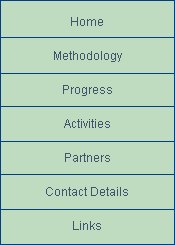
Design and Application of an Innovative Composting Unit for the Effective Treatment of Sludge and other Biodegradable Organic Waste in Morocco
Life-Third Countries Project co-funded by the European Community

The Project is co-funded by
the Life programme of the European Community
MOROCOMP website

LIFE05 TCY/MA/000141
Methodology:
MOROCOMP is implemented in seven (7) Tasks:
Task 1: Assessment of the existing situation in Morocco and in the EU
- Assessment of the existing situation in Morocco with regard to sludge and other BOW generation and of the existing management schemes, systems and practices
- Assessment of the existing situation in the European Union regarding sludge and other BOW generation and management (treatment, reuse and disposal)
- Review of sludge and other BOW composting practices in the European Union and related success stories on composting.
Task 2: Design and construction of an innovative sludge aerobic composting system
The composting unit will be designed and constructed by taking into consideration the local characteristics, proven technology, environmental impacts, minimal risk to public health, compliance with European Union environmental legislation and policy, sustainable market for the end product, flexibility and use of materials of Mediterranean origin as additives. The composting system will be designed in such a way in order to produce high quality compost. The system will be designed in a way to ensure the minimization of odours and process time by controlling operational parameters such as airflow rate, temperature and agitation. Utilization of this system can be an attractive option to produce a useful material from sludge and other BOW in an environmentally friendly manner. The pilot composting system will be an in-vessel reactor system. The type of reactor which will be constructed (horizontal, vertical or inclined) as well as its residence time and capacity will be decided at the design phase of the system.
Task 3: Development of sludge aerobic composting processes – Optimisation of the operation of the pilot composting systems
- Physicochemical analysis of primary and secondary sludge generated from the WWTP of Doukkala (El Jadida), of sludge generated from the PWR and of other BOW and additives (bentonite, perlite, etc).
- Development of aerobic composting processes using primary and secondary sludge from WWTPs, sludge from PWR and other BOW (greenwaste and manure) will be studied
- Development of alternative aerobic composting processes using effective additives in combinations with the above-mentioned waste (sludge and other BOW)
Task 4: Evaluation of compost products as soil improvers
- Development of phytotoxiciy tests in order to examine the suitability of the composting end products for agricultural application
- Examination of the effects of the compost, which will be characterized by negligible phytotoxicity on the yield (quantity and quality) of selected vegetable cultivations.
Task 5: Alternative uses of compost – Market opportunities in Morocco
- Assessment of alternative uses of compost products
- Suggestions for the development of compost market network in Morocco
- Job opportunities related to compost production and distribution
Task 6: Development of guidelines and specifications covering the sludge composting process - Characterization and use of compost as soil improver
- Development of specifications concerning the optimum operation of the composting system
- Development of specifications concerning the quality of the compost products
- Development of guidelines concerning the requirements for compost uses
- Development of manuals for testing and analysis of compost
Task 7: Dissemination and training Activities
- Informing all the target groups for the developed methodology concerning the treatment and reuse of sludge and other BOW.
- An International Conference, which shall take place in Morocco and where all relevant parties from Morocco and from European countries shall be invited
- Publications in National and International scientific journals and technical editions
- Workshops for dissemination of the project progress and results
- 3 Training sessions for specific groups
- Tours to the composting demonstration unit.
- Continuously updated website describing the project and its outcomes
- Printed material describing the project and its results.
- Launching event to inform all the relevant stakeholders of the project’s objectives and the ways these will be achieved
- Personal meetings of the working groups with those interested in being informed about the project
- Public information: organisation of meetings and establishment of information hotline
Task 8: Management
- Development of an action plan for the effective implementation of the project and the use of its outcomes after the end of the project
- Preparations of the reports for submission to the European Commission
|
|

